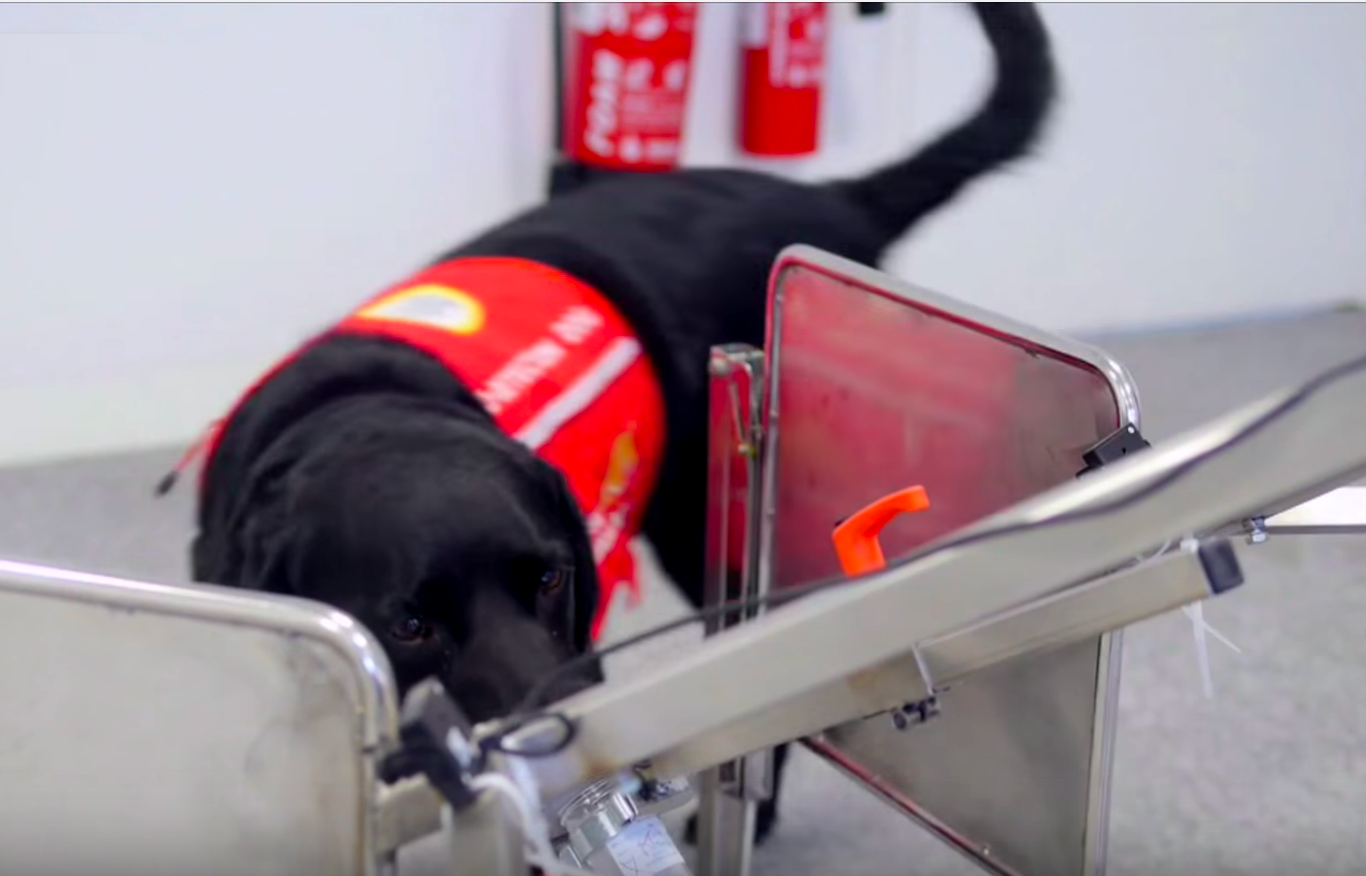Prostate diagnostic test aims to ‘sniff out’ cancer
New research by the University of the West of England and their partners could spell the end of invasive procedures for men

A research team from the University of the West of England, (UWE Bristol) and the University of Liverpool has reached an important milestone towards creating a urine diagnostic test for prostate cancer that could mean the invasive procedures men currently undergo eventually become a thing of the past.
A paper published in the Journal of Breath Research describes a diagnostic test using a special tool to ‘smell’ the cancer in men’s urine.
Working in collaboration with the Bristol Urological Institute team at Southmead Hospital and Bristol Royal Infirmary, the pilot study included 155 men presenting to urology clinics. Of these 58 were diagnosed with prostate cancer, 24 with bladder cancer and 73 with haematuria or poor stream without cancer. The results of the pilot study using a gas chromatography (GC) sensor system indicate that it is able to successfully identify different patterns of volatile compounds that allow classification of urine samples from patients with urological cancers.
The research team used a GC sensor system called Odoreader® that was developed by a team led by Professor Norman Ratcliffe at UWE Bristol and by Professor Probert at Liverpool. The test involves inserting urine samples into the Odoreader® that are then measured using algorithms developed by the research team.
Professor Ratcliffe said: “There is currently no accurate test for prostate cancer, the vagaries of the PSA test indicators can sometimes result in unnecessary biopsies, resulting in psychological toll, risk of infection from the procedure and even sometimes missing cancer cases. Our aim is to create a test that avoids this procedure at initial diagnosis by detecting cancer in a non-invasive way by smelling the disease in men’s urine. A few years ago we did similar work to detect bladder cancer following a discovery that dogs could sniff out cancer. We have been using the Odoreader®, which is like an electronic nose to sense the cancer.
Dr Ben de Lacy Costello from UWE Bristol is part of the team that developed the Odoreader®. He said: “The Odoreader® has a 30-metre column that enables the compounds in the urine to travel through at different rates thus breaking the sample into a readable format. This is then translated into an algorithm enabling detection of cancer by reading the patterns presented.
“The positioning of the prostate gland, which is very close to the bladder, gives the urine profile a different algorithm if the man has cancer.”
Professor Chris Probert from the University of Liverpool began work on this project with UWE Bristol when he was working in Bristol as a gastroenterologist with clinical and research interest in inflammatory bowel disease. He now has a clinical role at the Royal Liverpool. He said: “There is an urgent need to identify these cancers at an earlier stage when they are more treatable as the earlier a person is diagnosed the better.
“After further sample testing the next step is to take this technology and put it into a user-friendly format. With help from industry partners we will be able to further develop the Odoreader® which will enable it to be used where it is needed most; at a patient’s bedside, in a doctor’s surgery, in a clinic or walk-in centre providing fast, inexpensive, accurate results.”
Professor Raj Persad, consultant urologist at Southmead Hospital, North Bristol NHS Trust, said: “If further quality assurance is successful for this assay it could revolutionise diagnostics. It is an example of excellent translational research where a test can be taken from the lab environment to full-scale clinical benefit in the community. Currently available tests risk missing significant prostate cancer and over diagnosing harmless ones.
“Currently benign conditions such as prostatitis and benign prostatic hypertrophy (enlarged prostate) can also elevate PSA levels (prostate-specific antigen is the main blood test used for detecting prostate cancer ) leading to recommendations for biopsy. An accurate urine test would a) mean a less invasive and cheaper way of diagnosing prostate cancer, (a urine test rather than a blood test) and b) avoid unnecessary invasive prostate biopsy which itself can cause unpleasant side-effects.”
The pilot trial was funded by the Rotary Club in Bristol who held annual Run for the Future events in Bristol from 2006 to 2014. Event manager, past district governor, Rotarian Ian Beattie MBE MSc (Chem) said: “The news of the success of the pilot trial is wonderful. Since 2006, Run for the Future has raised almost £300k for Southmead Hospital Charity’s Prostate Cancer Appeal. This has been used to fund the research at UWE Bristol and has helped raise awareness of prostate cancer which affects over 40,000 men in the UK each year.”
The research team is now looking to fund a full clinical trial.
This content was written and controlled by the University of the West of England
Subscribe to Independent Premium to bookmark this article
Want to bookmark your favourite articles and stories to read or reference later? Start your Independent Premium subscription today.

Join our commenting forum
Join thought-provoking conversations, follow other Independent readers and see their replies